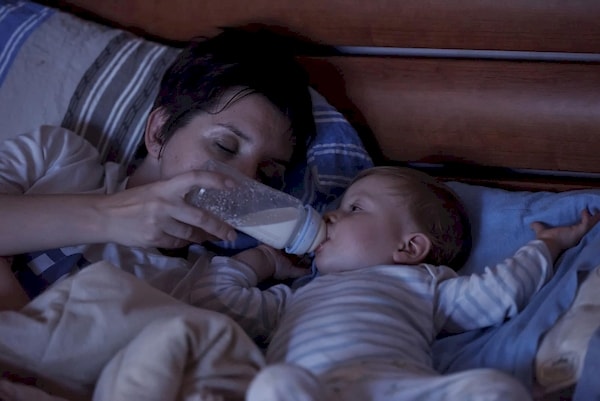The Developmental Importance Of Napping For Children
Infant naps aren’t simply precious minutes of adult respite; they’re also developmentally important.
Getting more sleep does not just need to be a dream for new parents. There are ways to make it happen, beginning with getting their baby on a consistent sleep schedule at night and with daytime naps.
This might not seek to examine; however, in reality, it is. Putting an infant to sleep softly needs an accurate and scheduled approach.
Sleep researchers have shown that setting babies' biological rhythms to a regular nap cycle is crucial to early development.
Routine sleep is a necessary physical and cognitive aid to an infant’s brain and body. And naps play an essential function.
According to clinical research studies, children who have routine, adequate daytime naps sleep in the evening better. They have fewer night walking episodes, are less accident-prone throughout the day, and show much better performance on cognitive tasks.
The unfavorable adverse effects of poor napping are equally notable. Kids who lack sufficient sleep, which is more likely if naps aren’t taken regularly, are at increased risk for weight problems throughout preschool and elementary school. These children also have more emotional, social, and physical functions in their early school years. They are most likely to show hyperactivity. Nature alone isn’t enough for infants to really gain the numerous benefits of sleep. Parents play a substantial role, and their very first concern is usually, “How many hours of sleep does my kid require every day?”
Experts have reached a consensus, concurring that a six-month-old will need 13 to 14 hours of sleep while a 12-month-old will require 12 hours.
That amount remains quite consistent until age four when kids usually stop napping. Then it falls to about 11 hours of sleep.
Of course, that’s actually useful to understand out of the gate; however still not incredibly useful for developing consistent nap schedules. Since infants' everyday sleep needs can vary a lot in the short-term– day to day or week to week– parents can seem like they’re confronting a moving target.
The mindset of “How many hours has it been since the last sleep?” doesn’t develop solid, day-to-day sleeping times. That’s best attained through active parental involvement and intervention.
Let’s take the following example. If your child can sleep 10 hours in the evening, from 8 PM to 6 AM, that suggests you aim for bedtime at 8 every night and plan to wake them up every day at 6 in the morning.
It may sound crazy. However, that’s what helps set that internal clock.
The exact same for naps.
Yes, though it appears counterintuitive, in some cases, the very best strategy for getting infants on a routine sleep schedule is to wake them up from a nap.
However, you can begin a snowball effect if you don’t wake them up. This means that they’ll nap for, let’s say, 3 hours, but then they will not be tired enough to go to bed during the night. It’s hard, however having a balance helps.
That’s why some babies hit all the best numbers in terms of daily totals; however, they still battle to sleep through the night– they’re simply not tired enough.
Rather than letting them sleep as long as possible throughout the day, the more reliable method ensures they get a few consolidated hours of good sleep.
Put simply, naps are a matter of quality over quantity. An hour or more goes a long way.
How Much Daytime Sleep Do Babies Need?
Babies: Until they’re about 3 months old, infants are taking a snooze maker. They can sleep up to 18 hours a day and usually only stay awake for about 2 hours at a time.
Children: After the newborn stage, however, before they reach their first birthday, children require 2 to four naps a day. They may rest anywhere from 30 minutes to 2 hours at a stretch.
Toddlers: Children this age must get 12 to 14 hours of sleep a day, some of which consist of naps.
Somewhere between their first and second birthdays, most young children drop from 2 naps a day to one, which usually occurs in the early afternoon. The remaining single nap can be long: up to 3 hours when that happens.
Preschoolers require 11 to 13 hours of sleep a day; however, it’s more important for them to get a full night’s rest than for them to nap. If your kid can’t fall asleep at night on the days when she naps, it might be time to shorten his afternoon nap.
School-aged kids and older: After age 5, many kids no longer need naps. That way, the nap won’t mess with their bedtime.
You May Also Like
4 Interesting Facts About How Children Sleep
When individuals make use of the phrase “sleeping like a …
Sleep Troubles And Nighttime Feedings
Although your child might stop regular nighttime feedings on his own …
Sleep Struggles – Why Do Children Cry As They Learn How To Sleep
You don’t wish him to cry. For all that to happen, he needs to sleep …






